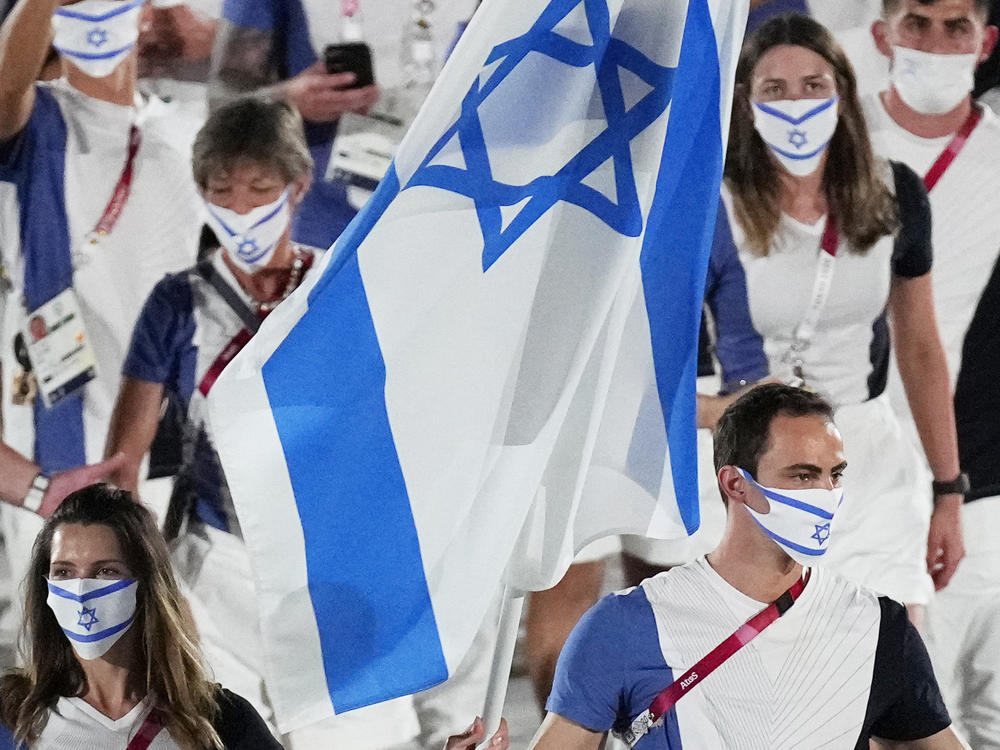Section Branding
Header Content
Russia says International Olympic Committee is giving Israel a pass on Gaza
Primary Content
When violence in Israel and Gaza escalated after last month's terror attack by Hamas, the International Olympic Committee (IOC) issued a statement warning against "discriminatory behavior" against Israeli athletes competing around the world.
"[A]thletes cannot be held responsible for the actions of their governments," an IOC spokesperson told the German Press Agency, promising "swift action" if incidents occur.
Russian officials reacted angrily to the IOC's stance toward Israel, noting that in October the Russian Olympic Committee was suspended for actions taken in occupied regions of eastern Ukraine.
"This is, of course, outrageous," said Russian Foreign Minister Sergey Lavrov, in an interview posted on Telegram. "Once again we see an example of the bias and ineptitude of the International Olympic Committee, which time and again proves its political bent."
Olympic officials say the Russian Olympic Committee's (ROC) latest suspension followed Moscow's decision to absorb sports organizations in four occupied territories of Ukraine, describing that action as a "breach of the Olympic charter."
According to an IOC statement, the ROC "cannot receive any funding from the Olympic movement" including revenue from international broadcast rights.
Russia's sports programs have faced a series of sanctions since 2017 after it was revealed that coaches and trainers created a nationwide system of athletic doping using banned substances.
The IOC views the two wars' impact on sport as "unique"
It's still unclear whether Russian athletes will be allowed to compete independently - without flying Russia's flag or playing the Russian national anthem — during the 2024 Summer Olympics in Paris, though that appears likely.
Lavrov said the two cases show clear bias between the treatments of Russia and Israel.
"[The IOC] actively supports everything that meets the interests of Western countries, primarily the United States, and tries to find wordings that generally props up this policy," Lavrov said on Nov. 2.
In a separate statement, an IOC spokesman said the situation involving Russia and Ukraine is unique and "shouldn't be compared to any other war or conflict in the world."
Russia has now appealed the IOC's decision to an international tribunal called the Court of Arbitration for Sport, based in Switzerland, which says it will review the case.
"[T]he parties are exchanging written submissions and the panel of arbitrators that will decide the matter is being constituted," CAS said in a statement on Monday.
"Sports are politics by other means"
Jules Boykoff, a professor at Pacific University who studies politics and the international Olympic movement, predicted the IOC will face growing pressure and questions over Israel's ground war in Gaza.
"Palestine is a participant in the Olympics, they have their own national Olympic committee and it remains to be seen whether territory will actually be captured by Israel and kept," Boykoff said.
"That would be in clear violation [of the Olympic charter] in the same way as what Russia has done," he added.
Boykoff said an increasingly volatile global situation - with wars in the Middle East and eastern Europe and growing tensions between the U.S. and China — has shaken the Olympic movement in ways the IOC is struggling to manage.
"In reality sports are politics by other means and that is becoming ever more clear the closer we get to Paris 2024," he said. "It's going to be a heck of a summer in Paris, that's for sure."
Eight months out from the Paris Summer Olympics, France has already seen large pro-Palestinian protests.
Israel and the Palestinians have a fraught Olympic history. In 1972, members of Black September — an affiliate of the Palestine Liberation Organization - took Israeli athletes hostage at the Munich Summer Games.
Eleven members of the Israeli Olympic team died in the terror attack, along with a German policeman and five Palestinian terrorists.
According to a 2022 NPR report, about 900 million people are believed to have watched the hostage crisis on television.
"From start to finish, it was the first time terrorists had hijacked a televised event and turned it into their own drama," said Bruce Hoffman, a senior fellow at the Council on Foreign Relations who has studied terrorism for decades.
In May, French officials unveiled their security plans for next summer's Olympic events, saying that 35,000 uniformed police will patrol the event.
Copyright 2023 NPR. To see more, visit https://www.npr.org.

